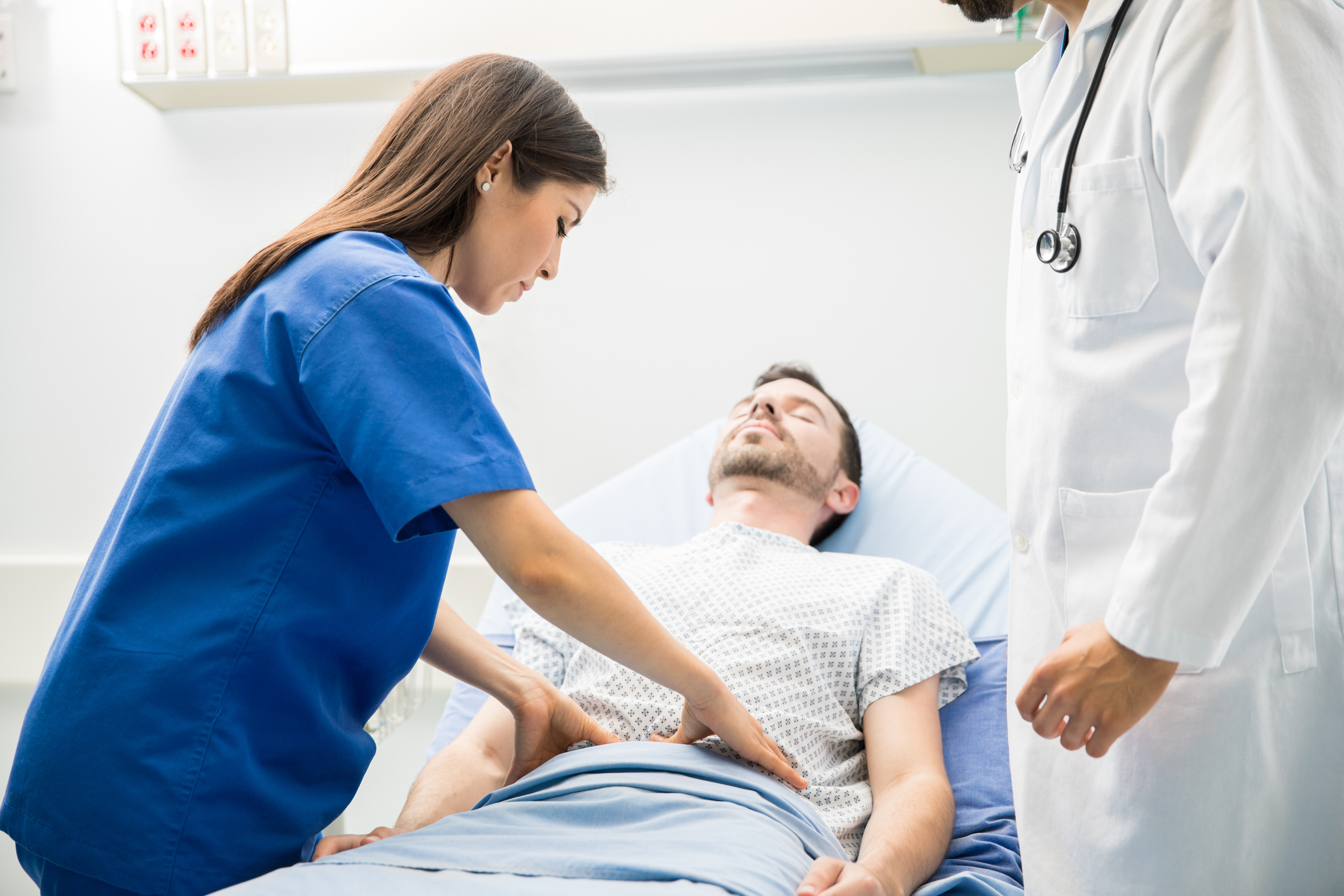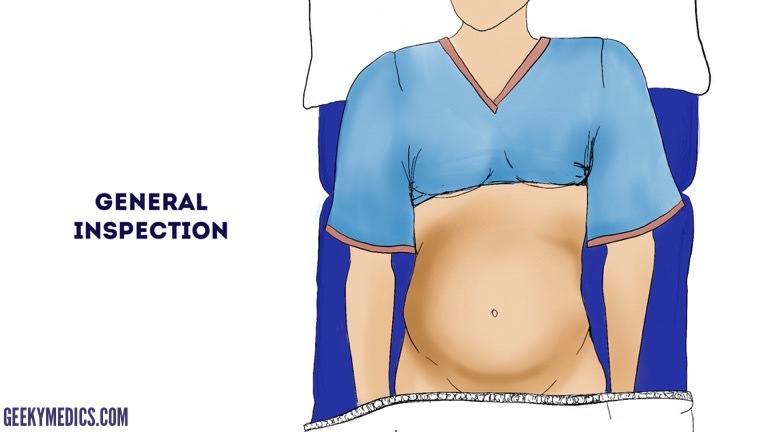'sometimes i feel my heart beating on my left chest and also my stomach moves with the rythm of heart beat. My hr is normal (60-80). Donald Colantino: Normal: It is very common to feel one's heart beat against the left si. In some cases, patients notice an abnormal pulse in their abdomen. As the aneurysm stretches it can also cause pain in your back or abdomen. Men are invited for screening during the year they turn 65. Men over 65 who have not previously been screened can contact. Chronic atrial and intestinal dysrhythmia (CAID) is a disorder affecting the heart and the digestive system. CAID disrupts the normal rhythm of the heartbeat; affected individuals have a heart rhythm abnormality called sick sinus syndrome.The disorder also impairs. For heart skips and reflux try this that took mine away.it was a hiatal hernia press down on the middle stomach were your stomach starts between your rib cage.press downward with your finger and hands very hard everyday for 3 days also you can go to google and search for hiatal hernia massage or chiropractor you can ask some treat this and do.
- Is An Extra Heartbeat Dangerous
- Heartbeat In Stomach After Drinking
- Heartbeat In Stomach After Weight Loss
Description
Chronic atrial and intestinal dysrhythmia (CAID) is a disorder affecting the heart and the digestive system. CAID disrupts the normal rhythm of the heartbeat; affected individuals have a heart rhythm abnormality called sick sinus syndrome. The disorder also impairs the rhythmic muscle contractions that propel food through the intestines (peristalsis), causing a digestive condition called intestinal pseudo-obstruction. The heart and digestive issues develop at the same time, usually by age 20.

Sick sinus syndrome (also known as sinus node dysfunction) is an abnormality of the sinoatrial (SA) node, which is an area of specialized cells in the heart that functions as a natural pacemaker. The SA node generates electrical impulses that start each heartbeat. These signals travel from the SA node to the rest of the heart, signaling the heart (cardiac) muscle to contract and pump blood. In people with sick sinus syndrome, the SA node does not function normally, which usually causes the heartbeat to be too slow (bradycardia), although occasionally the heartbeat is too fast (tachycardia) or rapidly switches from being too fast to being too slow (tachycardia-bradycardia syndrome). Symptoms related to abnormal heartbeats can include dizziness, light-headedness, fainting (syncope), a sensation of fluttering or pounding in the chest (palpitations), and confusion or memory problems. During exercise, many affected individuals experience chest pain, difficulty breathing, or excessive tiredness (fatigue).
Is An Extra Heartbeat Dangerous

In intestinal pseudo-obstruction, impairment of peristalsis leads to a buildup of partially digested food in the intestines, abdominal swelling (distention) and pain, nausea, vomiting, and constipation or diarrhea. Affected individuals experience loss of appetite and impaired ability to absorb nutrients, which may lead to malnutrition. These symptoms resemble those caused by an intestinal blockage (obstruction) such as a tumor, but in intestinal pseudo-obstruction no such blockage is found.
Frequency
The prevalence of CAID is unknown. At least 17 affected individuals have been described in the medical literature.
Causes
CAID is caused by mutations in the SGO1 gene. This gene provides instructions for making part of a protein complex called cohesin. This protein complex helps control the placement of chromosomes during cell division. Before cells divide, they must copy all of their chromosomes. The copied DNA from each chromosome is arranged into two identical structures, called sister chromatids, which are attached to one another during the early stages of cell division. Cohesin holds the sister chromatids together, and in doing so helps maintain the stability of chromosomal structure during cell division.
Researchers suggest that SGO1 gene mutations may result in a cohesin complex that is less able to hold sister chromatids together, resulting in decreased chromosomal stability during cell division. This instability is thought to cause early aging (senescence) of cells in the intestinal muscle and in the SA node, resulting in problems maintaining proper rhythmic movements of the heart and intestines and leading to the signs and symptoms of CAID.
It is unclear why SGO1 gene mutations specifically affect the heart and intestines in CAID. Researchers suggest that the activity (expression) of the SGO1 gene in certain embryonic tissues or a particular function of the SGO1 protein in the SA node and in cells that help control peristalsis may account for the features of the disorder.
Learn more about the gene associated with Chronic atrial and intestinal dysrhythmia
Inheritance
This condition is inherited in an autosomal recessive pattern, which means both copies of the gene in each cell have mutations. The parents of an individual with an autosomal recessive condition each carry one copy of the mutated gene, but they typically do not show signs and symptoms of the condition.
Other Names for This Condition
Heartbeat In Stomach After Drinking
- CAID
- Cohesinopathy affecting heart and gut rhythm
Additional Information & Resources
Genetic and Rare Diseases Information Center
- CAID syndrome
Patient Support and Advocacy Resources

Catalog of Genes and Diseases from OMIM
References


Heartbeat In Stomach After Weight Loss
- Brooker AS, Berkowitz KM. The roles of cohesins in mitosis, meiosis, and humanhealth and disease. Methods Mol Biol. 2014;1170:229-66. doi:10.1007/978-1-4939-0888-2_11. Review. Citation on PubMed or Free article on PubMed Central
- Chetaille P, Preuss C, Burkhard S, Côté JM, Houde C, Castilloux J, Piché J,Gosset N, Leclerc S, Wünnemann F, Thibeault M, Gagnon C, Galli A, Tuck E, HicksonGR, El Amine N, Boufaied I, Lemyre E, de Santa Barbara P, Faure S, Jonzon A,Cameron M, Dietz HC, Gallo-McFarlane E, Benson DW, Moreau C, Labuda D; FORGECanada Consortium, Zhan SH, Shen Y, Jomphe M, Jones SJ, Bakkers J, Andelfinger G.Mutations in SGOL1 cause a novel cohesinopathy affecting heart and gut rhythm.Nat Genet. 2014 Nov;46(11):1245-9. doi: 10.1038/ng.3113. Epub 2014 Oct 5. Citation on PubMed
- Krantz ID. Cohesin embraces new phenotypes. Nat Genet. 2014 Nov;46(11):1157-8.doi: 10.1038/ng.3123. Citation on PubMed or Free article on PubMed Central
